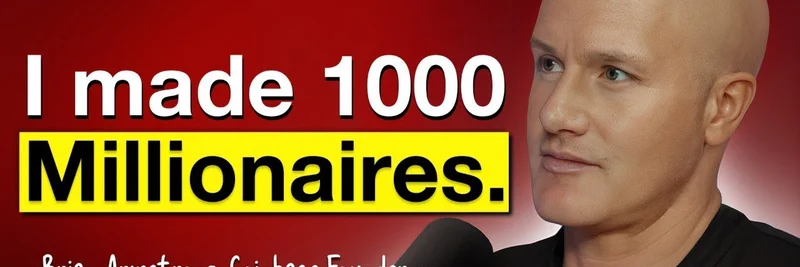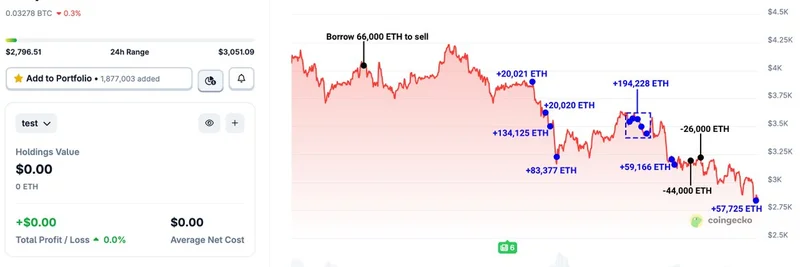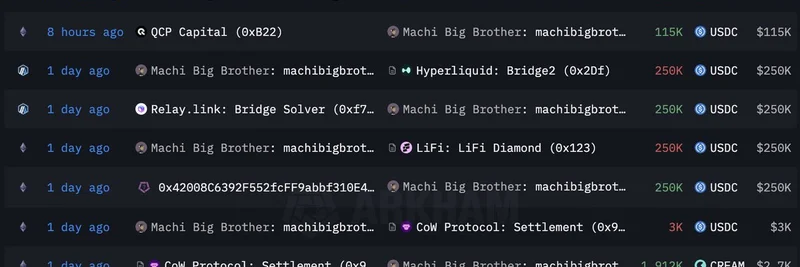If you've ever wondered what it takes to build one of the biggest names in crypto from the ground up, Brian Armstrong's latest appearance on the "When Shift Happens" podcast is a must-listen. As the co-founder and CEO of Coinbase, Armstrong dives deep into his personal story, the highs and lows of running a major crypto exchange, and his vision for a world with more economic freedom. The episode, hosted by MR SHIFT, dropped recently and has already sparked conversations in the crypto community.
From Humble Beginnings to Crypto Giant
Armstrong starts by reflecting on his early days as an introverted kid fascinated by computers and strategy games like Civilization. He admits to having a "chip on his shoulder," driven by a fear of not making a meaningful impact. This mindset propelled him into the world of blockchain after reading the Bitcoin white paper in 2010. At the time, Bitcoin was just $6, and the idea of decentralized money intrigued him, especially after seeing economic issues like hyperinflation during his time in Argentina.
It took about 1.5 years for Armstrong to go all-in on crypto. He quit his job at Airbnb after getting accepted into Y Combinator, which gave him the confidence boost he needed. Coinbase launched in 2012 with a simple mission: make it easy for anyone to buy, store, and use crypto. Today, it's evolved into a full-fledged platform that handles everything from trading to self-custodial wallets, serving millions worldwide.
Overcoming Challenges and Burnout
Running Coinbase hasn't been smooth sailing. Armstrong opens up about tough moments, like when his co-founder Fred Ehrsam left in 2017. It felt like abandonment at first, but it forced Armstrong to grow as a leader. He also talks about dealing with burnout, which hits him every few years. To combat it, he focuses on sustainable habits—exercise, sleep, meditation, and even watching motivational videos from folks like David Goggins.
Regulatory hurdles have been another big wall. Armstrong shares frustrations with U.S. regulators like the SEC, who he says enforce rules without clear guidelines. Despite lawsuits and political attacks (shoutout to critics like Elizabeth Warren), Coinbase has pushed back by engaging in policy work and even suing for clarity. This resilience has helped the company navigate bear markets, cyber threats, and massive value drops—think 90% crashes that test everyone's mettle.
The Mission: More Economic Freedom
At the heart of it all is Armstrong's goal to increase economic freedom. He explains this as giving people self-sovereignty over their money through sound, inflation-resistant assets like Bitcoin. Crypto, he says, lets anyone with a smartphone participate in the global economy without relying on traditional banks. It's especially powerful for the unbanked or those in unstable economies, where inflation acts like a "regressive tax" that hits the poor hardest.
Privacy plays a key role too. While blockchain is transparent, Armstrong advocates for optional privacy features, comparing it to the internet's shift from HTTP to HTTPS. Coinbase is working on this through acquisitions like Ironfish for their Base layer-2 network.
Insights on Entrepreneurship and the Future
Armstrong drops some gems for aspiring builders. Determination is key—be stubborn on the goal but flexible on the path. He critiques the broken fundraising system, pushing for on-chain capital formation to make it more efficient and transparent. Looking ahead, he sees centralized exchanges like Coinbase integrating with decentralized tech, aiming for a billion users in an open financial system.
On a personal note, Armstrong lives minimally—no fancy cars or watches—and finds fulfillment in impactful work rather than wealth. He even touches on controversial topics like embryo editing for disease prevention, believing it'll become standard in the future.
Why This Matters for Meme Token Enthusiasts
While the episode doesn't dive into specific meme tokens, Coinbase's role in the ecosystem is huge. The platform has listed popular memes like Dogecoin and Shiba Inu, making them accessible to mainstream users. Armstrong's push for easier on-ramps and self-custody could open doors for more meme projects, especially on networks like Base, which supports low-cost, fun experiments in the crypto space.
If you're into memes or broader blockchain tech, this podcast shows how the infrastructure behind it all gets built amid chaos. Watch the full episode on YouTube or check out the original tweet for timestamps to jump to your favorite parts.
Stay tuned to Meme Insider for more breakdowns on crypto leaders and trends shaping the meme token world.




